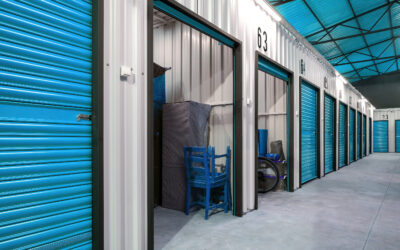Insurance rates are rising, media is buzzing about a possible recession, and capital is becoming harder to find. We spoke with MiniCo VP of Underwriting and P&C Insurance expert, Josh Leykam, about how these factors are impacting commercial self-storage and what we can expect in the year ahead. Although no one can say for sure what 2023 will hold, if you’re an agent working with self-storage owners and operators, here are a few industry trends to watch:
- Persisting inflation and rising insurance rates. At its most basic level, insurance pricing is a product of supply and demand — an increase of demand competing for the same capacity means premium prices go up. But in the case of self-storage insurance, there are other outside factors driving insurance premiums even higher. One of those factors is the rising cost of building materials and the labor costs associated with producing and transporting them.
Leykam explains, “From an underwriting standpoint, we’re facing more socially inflated cost profiles than we were several years ago. Carriers have to offset that risk somehow, and that’s being reflected in rising insurance rates.”
We’ve all become very familiar with recent pricing hikes and their ripple effects across all areas of business. But when it comes to insurance, those price jumps can be particularly painful. “The reality,” Leykam elaborates, “is that insurance is often the second or third most expensive item on a business’s balance sheet, which makes pricing increases more obvious to buyers.”
There’s likely to be a fair amount of insurance pricing sticker shock for self-storage owners and operators in 2023, and they’ll be looking to their agents to help unpack the reasons why. - A looming recession? Let’s talk about it. With recessionary indicators materializing, real estate markets across the country are on watch, and self-storage is no exception. But as Leykam points out, the self-storage operating model includes inherent safeguards that can serve to defend businesses from shifting economic cycles. “Self-storage demand can be influenced by the ‘4 D’s’ — divorce, death, dislocation, and downsizing. Recessions often equate to life changes for lots of people, which can actually fuel short-term demand for self-storage rentals.”
- Consolidation may be an attractive option for buyers, but not necessarily for sellers. With the recent news that Public Storage bid a staggering $11 billion to buy Life Storage, you may be wondering if we’ll see a surge in consolidation in the year ahead. While there may be a lot of interested buyers, sellers may not be quite so eager, and we might see consolidation slow down. Leykam says, “With multiples beginning to shift downward, self-storage owners, particularly those in high-growth areas of the country, may decide now is not the time to sell. They may choose to hunker down and weather the storm or work to make themselves even more attractive to buyers down the road, via expansion, when selling conditions improve.”
That said, if buyers have the capital now and are able to find a willing seller — now may be an opportune time to invest. - Natural catastrophes have been tallying up damages. No one can ignore the uptick in extreme weather events over the past several years. As damages and resulting costs mount, insurance is seeing a significant pullback in coastal aggregate capacity, which makes it difficult to insure coastal self-storage properties through standard admitted markets. Insurers are forced to go to the excess and surplus market, which comes at a higher premium and potentially lower limits. “This may deter some self-storage operators from seeking to expand near the coast,” says Leykam. “But self-storage tends to follow population growth, so I think we’ll continue to see the coast as a point of attraction for the self-storage industry.”
- Cost-cutting can put insurers in the position of being under-insured. Given the increasing building valuations and elevated reconstruction costs, it may be tempting for some self-storage operators to try curbing insurance costs by reducing their coverage. While every business owner has their own tolerance for risk, it’s important they don’t get into a situation where they under-insure their assets. “People will have to think about that critically in 2023 and 2024,” says Leykam. “They will need to accurately assess the replacement costs and not just the market cost of what they’re insuring — and agents can help with that.” In addition, agents can also be advocates for their clients who will likely want to shop around and explore alternatives in this hardened market.
- Mobile storage may be the dark horse of the industry. With a remote or hybrid work environment settling in as the new normal, people have realized they can pull up stakes and move more easily. As a result, we’ve seen a stronger reliance on mobile storage than in years past. This is great news for agents looking to tap into new market opportunities.
Traditionally, self-storage lends itself to a more property-centric risk profile, which is where carriers are really examining capacity. Mobile storage, however, leans a bit more into casualty coverages in that it deals in auto liability as well as premises liability and workers comp, especially in delivery scenarios. Leykam points out, “Carriers who are more restricted on property capacity may want to consider mobile storage as an alternative or complement to traditional self-storage, and agents shouldn’t be afraid to have that conversation with their markets.”
MiniCo is a pioneer and the leading innovator in specialty insurance solutions for self-storage risks nationwide. Contact one of our experts today to learn more.




